I have one history table which has information of transaction record of master table, in this table I have used XML column to store that transaction information. Table structure with data looks as follows,

In Content XML data are stored as XML like below.
<Answers>
<AnswerSet>
<Answer questionId="ProductCode">S3404</Answer>
<Answer questionId="ProductName">Parabolic Triple</Answer>
<Answer questionId="LegacyOptionID" selectedvalue="1389">1389</Answer>
<Answer questionId="LegacyContentID" selectedvalue="624">624</Answer>
<Answer questionId="LegacyPageID" selectedvalue="355">355</Answer>
<Answer questionId="LegacyParentID" selectedvalue="760">760</Answer>
</AnswerSet>
</Answers>
In all rows structure is same but data is different in answer node, I want to get data which has ProductCode="S3404" and CreatedDate is New.
I have created query like
select n2.* from nodehistory n2 CROSS APPLY
n2.content.nodes('Answers/AnswerSet') T(c) WHERE
c.value('./Answer[@questionId="ProductCode"][1]','varchar(100)') ='J154'
ProductCode has unique data for every nodeid, but this is returning more than one row for same nodeid because this is transaction table so same XML can be store multiple time, for this require condition like order by Createddate desc, but execution of this query is taking more time due to XML processing I think.
Can we do like first get
Select Top 1 nodeid from NodeHistory order by CreatedDate desc
then search for XML part.
Any ideas on the more suitable views for better performance?